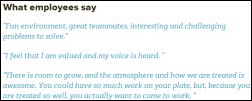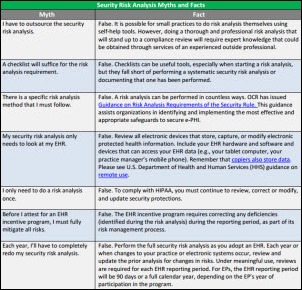The article about Pediatric Associates in CA has a nugget with a potentially outsized impact: the implication that VFC vaccines…
News 12/12/13
MGMA asks HHS to begin end-to-end ICD-10 testing with physician offices, saying that the scheduled front-end ICD-10 testing will be insufficient and “could result in operational problems similar to what HHS experienced with the roll-out of HealthCare.gov.”
The Orange County Register names Kareo a top workplace in Orange County in the mid-sized company category.
HealthTexas Provider Network, a multi-specialty group with over 590 employed physicians, pilots White Plume’s ePASS product suite to prepare its physicians for ICD-10.
The American College of Physicians supports the development of a national prescription drug monitoring program that would allow physicians and pharmacists to review a single database prior to prescribing controlled substances.
CMS publishes a tip sheet on conducting a practice security risk analysis, which is a requirement for meeting MU objectives in both Stage 1 and Stage 2. I thought the myth versus fact section was particularly enlightening, including guidance on when an audit should be done and at what point any risk deficiencies should be corrected.
CMS says it will develop guidelines to ensure that the practice of copying and pasting in EHRs is used appropriately, and intends to work with the ONC to develop “a comprehensive plan to detect and reduce fraud in EHRs.” In terms of detection, I have to wonder how difficult it is to modify existing plagiarism detection technologies that academics have been using for years. I’m not a programmer, but why can’t this technology be modified to look for redundant phrases within clinical documentation?
Email Inga.





With respect to Copy/Paste… remember that Redundant phrases are actually quite a good thing for certain parts of the medical record, both due to the efficiency of the process and the fact that something won’t get “forgotten”. For example, it make sense to copy forward certain important details you just need to ask once (eg Family history, initial onset of symptoms, etc…). And in fact, not copying them forward increases the risk that you might forget something later. On the other hand, two errors can happen (1) The person doing this does not update the info for today’s visit; or (2) The initial info was incorrect.
But either way… the idea is that we need tools that do more than simply compare… a good note may be 80% similar from day to day- that is Ok and expected. It’s knowing which 20% should be different that will be the key… (Sorry this went over as two comments)